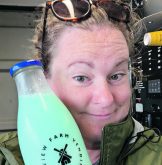Rural workers who get hurt on the job in Alberta are slower than urban workers to return to work after injury. They are also more likely to get reinjured once back at work compared to urban workers.
These are among the findings from University of Alberta research using Workers Compensation Board injury claim data from 2009-11.
The analysis showed workers who live in rural Alberta remain longer on disability and are 1.6 times more likely than urban workers to go back on disability.
The study defined rural as having fewer than 50,000 people, so that would include all but the six or seven largest cities in the province.
Read Also

Fuel rebate rule change will affect taxes and AgriStability
The federal government recently announced updates to the fuel rebates that farmers have been receiving since 2019-20.
Doug Gross, a professor in rehabilitation medicine at the U of A and a co-author of the study, said the nature of many rural jobs, such as farming and oilfield work, makes them inherently more dangerous and the resulting injuries can be more severe than those sustained in urban jobs.
But that is only one factor that could be at play. Ease of access to rehabilitation options, lack of job flexibility and the rural penchant for independence and toughness could also be involved.
Regarding the latter aspect, Gross said in an interview that such attitudes are hard to measure.
“We know that stoicism and the concept of rural hardiness are really strong prevailing attitudes in those smaller towns. We didn’t have good measures on that. What we do know is that the workers from the smaller towns were more likely to have severe injuries, more severe injuries. Fractures, dislocations, those kinds of things.
“But then they rated their pain and disability and impact as not as severe, so I think it was probably coming through there.”
Gross also said the nature of some rural jobs might makes it difficult for employers to modify or adapt tasks so workers could manage them while recovering from injury.
Some employers might also be reluctant to accept a worker who is not yet fully capable of doing the same job.
“As much as possible if employers can be creative and look for those kind of solutions, it’s in everyone’s best interest. It helps their bottom line and it helps the worker. The modified work becomes a form of rehabilitation,” said Gross.
As for access to rehabilitative treatment, many smaller centres do not have physical therapists, let alone multi-disciplinary clinics with staff experienced in work disabilities.
To obtain that, rural-based workers would have to travel and that might be a barrier, Gross added.
The WCB policy is that all injured workers have the same access to treatment and rehabilitation, “but there’s some structural barriers that make that difficult.”
Don Voaklander, a U of A public health professor and another co-author of the study, has suggested the development and hiring of rural specialist care managers might address the problem.
Gross said he sees merit in more personalized care for different sectors of the working population.
“What people in small towns need is likely different from what the people in the city need and therefore it kind of makes sense that you would have a case manager that is guiding those decisions.”
Callum Lavoie, a graduate student of Gross’s, was lead author on the study, which was recently published in the International Journal of Occupational Medicine and Environmental Health.
Gross said the study stemmed from similar ones conducted in the United States, which had some of the same results.
Gross himself has been studying worker health and return-to-work issues for almost 20 years and had the WCB database available from other work. Next, he plans to analyze data from 2012-16.
That data might be affected by Alberta legislation requiring farm operations to provide WCB coverage for non-family employees.















